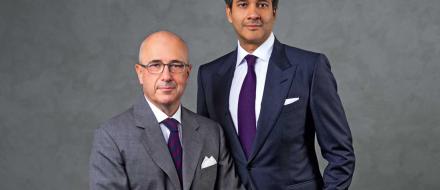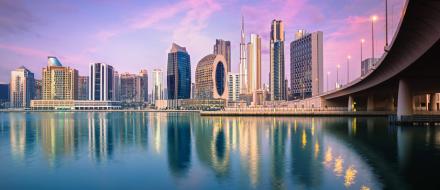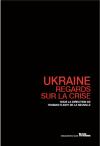I don't see why IFC would not succeed...
Arnaud Leclercq, partner and Head of the New Markets division at Lombard Odier Capital Partners, is also the author of a book "Russia: Power of Eurasia". The book has recently been published in France. Now Mr. Leclercq is discussing with CAPITAL IDEAS how this country is perceived by outside investors and what would be the best way to bring them here.
Mr. Leclercq, I suggest we could start with the most general, but also a very important question: what needs to be done to attract more investment?
There are several aspects. First of all, in order to attract foreign direct investment. the FDI, one has to remember that a business, or a company always has a choice to invest here or there. They can be interested by Russia, they can be attracted by Russia, they can see its great potential With so many people living in it, and see its huge market capabilities, but if they feel that the investment is not secure, is not supported by the political power, that there is too much corruption, or whatever the criteria are, they would invest gladly in a country, but -they have a choice to mvest somewhere else.
And what is the second aspect?
The second aspect that Russia is lacking today, is definitely the access to capital markets, and the Russian companies - to bonds and equity financing and private equity financing. or investments, and when you don't have so much liquidity in a very specific market, and especially financial market, then you're reluctant to invest, as simple as that.
So - then, creating the international financial center in Moscow - is that going to help us get a better access to capital markets?
I think, Russia has no choice bur to try. Look. If you consider that the Warsaw stock exchange is becoming some kind of reference in the area, and that some companies have decided to list there... By all means, and with all due respect for our Polish friends. Poland is not the same size of market as Russia. Now, if the Warsaw stock exchange has managed to acquire an image of quality, and serious approach over all those years, I dont see why Moscow would not succeed
in that, if it really wants to.
The allocation of resources is something that many countries tend to overlook. Business allocates its resources where there are best conditions in terms of return, but also in terms of timing, and understanding, and comfort. Russia is definitely lagging behind in that regard and that is probably because of Russia herself, and because of maybe of misunderstandings and misperception in the West of Russia. In other words, perception and a number of things are not positive in the West, but that's probably also because Russia doesn't help.
Doesn't help - in which sense? it's not doing enough to promote its positive image? Or there are real issues for potential investors?
I think, it's a question of image, but there are other things. If we talk about Russia, it's also a question of political stability, and now the Situation is stable, whether someone likes it or not, and this is a very positive factor for investors. Yet, there are also issues of the insecurity of investments, unpredicted change, people often think that you work on something, you decide something but then the state decides differently, and whatever they have managed to achieve is all in vain. I am not saying it's true, but that's the perception.
So, it's a matter of openness and image building?
Well, it would be somewhat overly simplistic, I'd say. Look. Over the years since the Perestroyka the liberals in Russia were very open to the West, but in fact, what the country received in exchange was not necessarily very positive in effect. There was that open door which was closed by Western Europe The West on the one hand was very happy to see some liberals and the freedom of economy but on the other hand it was complaining about the oligarchs and people stealing and mafia and God knows what. Everything you could read in the media in those years was essentially highly negative because of instability and many other reasons.
But now the attitude of the Western media seems to be quite the same, despite all those years and the change we've been through...
You know, when order came back with Mr Putin at the beginning of 2ooo-s, it was the resurgence of Russia as a power, and other powers do not necessarily like that. Moreover, when after the 9/11 President Putin was very open to the US for cooperation - letting US flights go over Russia, facilitating air base issues in Kirgizstan and Uzbekistan, and so on. But it seems that what happened after that, was not well received by Russia. I am now talking about soft revolutions in the Ukraine and other CIS countries, missiles being put in Poland and Czech Republic supposed to protect those countries from Iran, which sounds a bit odd to any specialist, etc. etc. What I'm saying, is that there are a number of signs showing that despite the hand which was given to the West after the 9/11, the response of the West appeared to be not exactly positive in a number of regards. And you get to understand that Russia's Western experience is not necessarily as positive as it could look from the outside.
Now, please don't get me wrong. I am not here to judge, whether it is right or wrong, I am not taking sides, but I am just trying to look at it from the Russian standpoint, I am trying to see what happened, how it works and what the situation is today.
I think one of the points you were making in one of you recent interviews, is that we mustn't get overly focused on Western investment?
I don't think that Asian countries, the economies like India, like China, like South Korea and a number of other fast-booming countries would care so much about the things which Russia is blamed for today. Russia has clarified its frontiers with China, the potential is there, of course we know that China is very thirsty for all energy resources from Russia, but not only, today these countries are not enemies, today it's rather a pragmatic partnership, trade which would not necessarily go through the US dollar, and there are similar things with other Asian countries. So on one hand you have Europe which is going down, its future is in question in regards of its currency, in regards of whether the EU would manage to survive in its present form, and at the same time quite the opposite in the Eastern perspective.
So compared with its relations with the West, Russia's relations with the East are much more favorable and have much more potential.
You said the world is really thirsty for all kinds of energy sources, but it would be quite unfortunate if Russia would focus on energy sector alone. So, as a banker, as an analyst, which other areas would you identify as potentially attractive for investors in Russia?
I wouldn't even know if energy is really the preferred sector for a foreign investor in Russia. I would favor the consumer market, companies which are related to that. We have a middle class that has emerged in Russia. We have some companies in retail, smaller supermarkets, the producing companies in Russia with a relatively cheap labour and good knowledge. Their productivity is not necessarily the highest because of the old equipment and alchoholism, but nevertheless - food Industry, and everything which is retail sector is growing very fast - and that sector I would favour very much.
How about agriculture?
Agriculture, is indeed, also very interesting. Russia came back last year especially for wheat production to very high levels and became No 2 and No 3 exporter of wheat in the world, thanks to its chernozyom regions and improvement of agriculture. And that is also a geopolitical factor. When you have countries with a vast population like India, which is quite close to Russia, you can gain key positions as well in geopolitical terms. There is, of course, still lots to be done in terms of reorganization, to go to levels of the US and Latin America, like Brazil, for instance. But a lot has already been done already. Agriculture has great potential in Russia.
Do you think that investing in science and technology could be attractive?
Here, again, Russia has no choice, and the project of Skolkovo in Moscow, and some other are key. It should take the schools of mathematics and physics. You have basically three countries which always come at the top - Russia, US and France. If you look at the number of Nobel prizes and other top International awards, which were given, especially in theoretical mathematics - these are the three countries. Of course, Russia has the brain, has the capacity... It may have lost in the last years the level of excellence which used to be there in the Soviet Union. But I think it has the potential - let's not forget that one of the two founders of Google is Mr. Sergey Brin. Yes, the potential is there. Now, how will Russia succeed to attract and keep these young people - extremely talented, and demanded people - in Moscow - that's not easy...
What would you suggest, needs to be done to keep the brains here? Creating more R&D centers?
Well, you know, the fantastic success of the Silicon Valley and its equivalent in the Eastern coast which is in the area of MIT, and Harvard, and the same way around Stanford, and San Francisco on the Western Coast - it is not only about a nice building... It is important, of course, don't get me wrong, to have a fantastic campus, where people like to study, but that's much more than that. It's a spirit, it's money, and I mean money not only about the infrastructure, it's also money about having the capital there, so that these highly talented people in IT, I genetics, and usually it's more of a combination of IT and life science - and this is a very powerful combination, and it's exactly the future now.
And, mind you, you have some powerful investors sitting nearby. And when these talented young people come up with a brilliant idea, they usually easily find some money to invest in it. So, it's a kind of dynamics and a combination of factors of support, like tax advantage, infrastructure, spirit and capital invested, which has to be created nearby.
It sounds beautiful, but this is a challenging task...
I think Russia could do it, it could be one of the magnets for those people, thanks to those brilliant young science people, and could also attract some people from China, CIS, Indian people... But it takes huge energy, time, money, and, most importantly, people have to feel comfortable. And I don't have the answer if that is the case or not...
Comfortable - in every sense of the word?
Yes, comfortable in every sense of the word.
So, when an investor decides to come to the Russian market, what needs to be done to make him comfortable?
It depends on what kind of investor you are talking about. If we look at large investors, some countries have a special team - one of them is a high civil servant and others are business related people, and - they are some sort of ambassadors. They are respected as such, and their job is to be an open door for large foreign investors, or potential investors, on one hand to answer some requests, and on the other hand to create some need and better understanding
of what is needed.
Could you give us any example of that?
Let's take agriculture again. If a country like Russia determines it wants to improve its agriculture, these people might say: look, if we want to really improve our agriculture, or wheat, or corn, let's see, who is best at it, whom we can bring to the country, what kind of confidence can we bring to them, and so on. And this is how you create pro-actively, not just by advertizing on the CNBC, or investin-Russia, but create pro-actively, I stress it - a direct contact with the key businesses that you want to attract to your country. You give them confidence that there will be rules, and support at the top level with the administration. And such people could say - OK, we give you guarantees, and when we give a call to a local governor, he is going to give his support, because we support you at the highest level of the country.
Are you saying the support from our officials is all large investors need to come to this market?
Of course, not. If we talk of the most interesting, the key, investors to attract, then there's definitely, an issue of infrastructure. I travel a lot, and there are places, like, Dubai, for instance, where infrastructure level for passengers, for cargo - is just fantastic. OK?
When you look at potential investments, you look at all that. Not only the support you could be given, but also the infrastructure and so on. So if at least, there could be this understanding of small VIP teams, directly reporting to the prime minister or the President himself, to go and target the key industries and businesses, which can be of longterm interest for the country, and do whatever is necessary to support them, that will definitely help. And then, you know, there is a side-effect to that...
A side effect?
Yes. When such a team does it, they target the elites of the countries, which they are interested in. They talk not only to ministers, but to high-level business communities, explain to them how to invest in Russia, what to do, how comfortable you can be, how we can help you, and then you create this positive dynamics among the elite business people of some of the most interesting countries. And then, when they did the investment, they're happy with it, people come and say, we did this investment, they helped us so much, this was actually much easier that we ever expected. And, you know, in every country's business community you always have some 150 people at the top, so when several ones of them are convinced, that those people had been supported - technically, politically, taxwise, and so on, you create the dynamics. If you don't do that, then it becomes much more difficult.
How about smaller-scale investors?
As for the smaller ones - then there's the usual thing, there need to be incentives, infrastructure, easier legal systems, flexibility, which, I think, Russia has pretty much, but still, there is much to be done. People from the outside world still believe it is too far away, too vague, they have no idea whom they should talk to, and so on...
When you're coming to Moscow, do you find it a business-comfortable environment?
Well, when you have to drive for two hours to get from one place to another, it's not comfortable at all! And it is very important for a business person, especially if he is on a business trip for a couple of days and needs to meet as many people as he possibly can, without wasting time on traffic jams...
At the same time a positive thing is that, compared to other countries, in Moscow people feel safe in the streets. The hotel infrastructure, the quality of service you get there is very good, generally speaking, the city is very attractive and can be beautiful.
How about people?
Now, and here I can only talk of my own experience, people with whom I've been working here, are very straightforward, when they give you a word, they give you a word, shake-hand and agreement is usually more important than any contract you can sign. In Russia, I know, there were some agreements made between people ten years ago and they are still going on - without any contract. Though I am sure, some Western people have had very bad experiences, but then - maybe they didn't go to the right people. And that is also a part of the problem... You see, in Russia you can really get fantastic business experience and next door you can get it of a much lower, even disappointing quality. Investors are usually content with not necessarily fantastic, but stable good-quality level.













